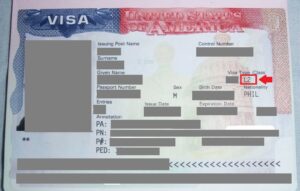A court in one nation can ask a court in another nation for judicial help through a process known as “letters rogatory.” Help presenting evidence that exists overseas or assisting with court proceedings are the most common requests. A German court might, for instance, write a letter rogatory to a US court asking the US court to hear testimony from a witness who lives in the US court’s jurisdiction and send the German court a transcript of the testimony. Also known as a request letter.
What Is Letters Rogatory Used For
Also called a request letter. a request from a domestic court to the judiciary of another nation to carry out a specific action that, if undertaken without consent from the foreign nation, would violate that nation’s sovereignty. Common uses of rogatory letters include:
- The gathering of proof.
- Serving a subpoena, summons, or other official document.
- The act of carrying out a civil ruling.
(CFR § 92.54, 28 CFR)
The presence of bilateral or multilateral judicial assistance treaties has no bearing on the use of rogatory letters. Non-signatories to evidence-collecting treaties must submit and send rogatory letters via diplomatic channels. To obtain the performance of a requested action, letters rogatory employed in nations party to a treaty, such as the Hague Evidence Convention, may typically be filed directly to a court in that nation (see 28 U.S.C. §1782).
Letters Rogatory: Overview
The 2005 CLE paper “Multi-Jurisdiction Litigation: Some Hot Topics” explains that “letters rogatory” or “letters of request” are utilized for obtaining evidence in international proceedings. A court will send a request to a foreign court asking it to gather evidence from witnesses within its borders and bring it back to the first court for use in its proceedings.
“Letters rogatory” or “letters of request” are defined under the Canadian Abridgment Words & Phrases as:
British Columbia
Request letters are another name for rogatory letters. In essence, they are asking one judge to another to allow a commission from a different jurisdiction to question a witness outside of the court that is making the request.
Canada’s Supreme Court
According to the Canada Evidence Act, [R.S.C. 1985, c. C-5], s. 46, To obtain statements, testimony, or documentation for use in lawsuits before foreign courts, use Rogatory letters. This type of judicial assistance is based on the concept of comity, just like forum non conveniens and the acceptance and execution of foreign orders.
A letter of request or rogatory can be used to seek foreign evidence for a proceeding in British Columbia or to gather evidence in British Columbia for a proceeding outside of the province.
Evidence collection for legal processes conducted outside of the province.
S. 53 of the Evidence Act, R.S.B.C. 1996, c. 124, Power to require examination of witnesses under a commission issued by a foreign court, governs requests in British Columbia for the implementation of letters rogatory issued by a foreign court.
Getting Foreign Testimony for BC Legal Proceedings
The BC Supreme Court Civil Rules on Depositions, Rules 7-8 (8) to (12), regulate the process of obtaining letters of request in British Columbia. It is a formal request to the relevant foreign courts to compel a citizen of that nation to testify orally and in writing in support of a British Columbian proceeding.
The CLE paper “Multi-Jurisdiction Litigation: Some Hot Topics” from 2005 states:
“In the past, BC courts might uphold letters rogatory if the desired information was going to be used in court; however, requests for documents or witness testimony for the sole purpose of discovery were probably not going to be upheld. BC courts are becoming more lax in enforcing rogatory letters, primarily due to the witness’s reaction to the suggested questioning.
The 2006 CLE document is available in most courthouse libraries and contains these forms. “Obtaining Evidence in Foreign Jurisdictions and Dealing With Foreign Letters of Request in B.C.” from the conference on Conflicts Issues.
Letters Rogatory: FAQs
In Canada, what is a letter rogatory process?
Letters rogatory is the most effective method for obtaining evidence from Canada in a U.S. legal process. The American side files a motion in an American court to receive the request letter. Subsequently, it applies to a Canadian court to have the request letter enforced there.
A letter rogatory: what is it?
A court in one nation can request judicial assistance from a court in another through a process called “letters rogatory.” Most often, requests are made for help producing evidence that is located abroad or with serving legal process.
How does Canadian precedent operate?
Judges must abide by the principle of stare decisis under Canadian common law which mandates that they consider earlier decisions.
which is made by other judges in lower courts within their province or territory and by the Supreme Court of Canada regarding the same matter.
In Canada, is it permissible to decline to testify?
If you have a compelling reason not to testify, you can request that the judge revoke the subpoena or summons. A judge may, for instance, revoke a summons to Small Claims Court if there is no genuine need for you to testify or if it would be difficult for you to appear in court.
Conclusion
The Hague Convention allows contracting parties to request evidence through letters of request in civil or commercial matters. Participating nations may still take action to encourage this voluntary exchange of evidence. Canada’s non-participation in the Hague Convention prevents lawyers from accessing foreign clinical records, despite the international agreement providing legal advice. The international treaty establishes precedents and guidelines for other countries, while also fostering international comity among the contracting nations. The Rules of Court addressing letters of request must be consulted by local counsel seeking to apply analogous to a letter rogatory under the Hague Convention on the Taking of Evidence in Civil or Commercial Matters.



